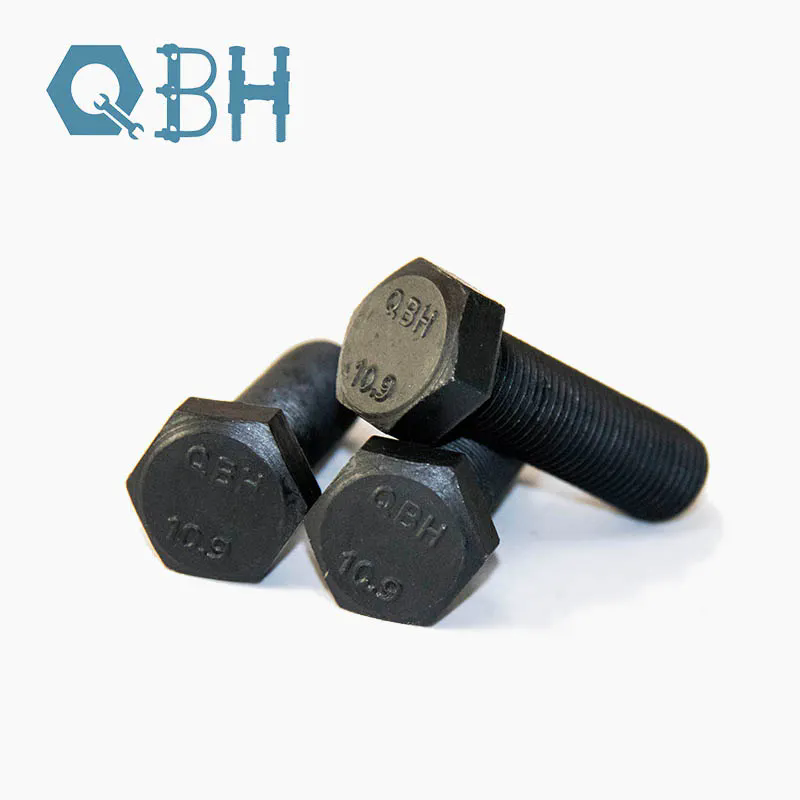Why Are Heavy Hex Bolts Crucial in Construction and Engineering?
2024-11-20
When it comes to construction and engineering projects, every component matters. Among these, heavy hex bolts stand out for their strength, durability, and reliability. But what makes them so essential, and why are they preferred in demanding applications? Let’s explore their features, applications, and significance.
What Are Heavy Hex Bolts?
Heavy hex bolts are fasteners with a larger and thicker head compared to standard hex bolts. They are designed to provide a greater bearing surface, making them ideal for heavy-duty applications. Made from materials like carbon steel, alloy steel, or stainless steel, these bolts are built to withstand high loads and extreme conditions.
What Sets Heavy Hex Bolts Apart?
1. Larger Head Size:
- The larger head offers improved grip and better distribution of force, reducing the risk of loosening under heavy loads.
2. High Strength:
- These bolts are engineered for structural integrity, often conforming to strict standards such as ASTM A325 or A490.
3. Corrosion Resistance:
- When coated or made from stainless steel, they can endure harsh environments, including marine or industrial settings.
4. Versatility:
- Suitable for various applications, from bridges and buildings to machinery and pipelines.
Where Are Heavy Hex Bolts Used?
Heavy hex bolts are indispensable in industries that require high-strength fastening solutions, including:
- Construction:
- Used in steel structures, girders, and bridges to ensure stability and safety.
- Oil and Gas:
- Essential for securing pipelines, rigs, and refineries under high-pressure conditions.
- Energy Sector:
- Found in wind turbines, power plants, and solar installations, where reliability is critical.
- Heavy Machinery:
- Provide secure connections in equipment subjected to intense vibrations and loads.
Why Are They So Important in Critical Applications?
Heavy hex bolts are often used in environments where failure is not an option. Their superior mechanical properties and ability to distribute force evenly make them the go-to choice for engineers. A failure in fastening can lead to catastrophic results, especially in large-scale structures or high-stakes projects.
How Do You Choose the Right Heavy Hex Bolt?
Selecting the appropriate heavy hex bolt involves considering several factors:
1. Material:
- Choose materials based on the environment, such as stainless steel for corrosion resistance or alloy steel for higher strength.
2. Thread Type:
- Coarse threads are better for quick assembly, while fine threads offer greater holding power.
3. Grade:
- Match the grade of the bolt with the required load capacity and industry standards.
4. Coating:
- Zinc plating or hot-dip galvanizing can enhance corrosion resistance.
Proper selection ensures the bolt performs as expected, even in extreme conditions.
What Are the Benefits of Using Heavy Hex Bolts?
- Enhanced Durability: Their design and material ensure longevity, even under high stress.
- Ease of Installation: Despite their size, they are straightforward to install with standard tools.
- Reduced Maintenance: Once installed, they require minimal upkeep, saving time and costs.
- Improved Safety: Their ability to handle heavy loads contributes to the overall safety of structures and machinery.
Conclusion
Heavy hex bolts are more than just fasteners—they are the backbone of many industrial and construction applications. Their robustness, reliability, and adaptability make them a critical component in projects where strength and safety are paramount.
Next time you see a towering bridge or a massive piece of machinery, remember the unseen heroes like heavy hex bolts that hold it all together. Isn’t it fascinating how something so simple can play such a vital role?



